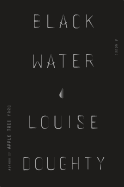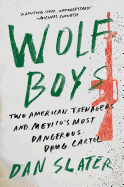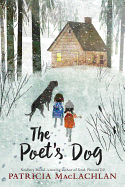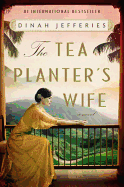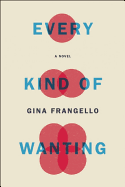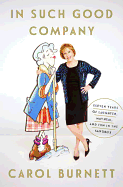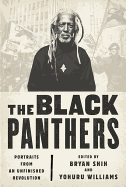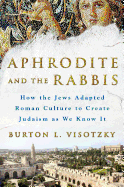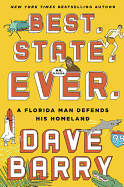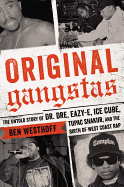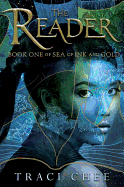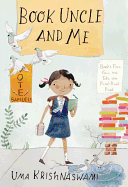Friday, September 16, 2016
 As the political temperature in the post-Brexit U.K. and pre-election U.S. rises to, well, Shakespearean levels, maybe it's time to briefly revisit the 400th anniversary of the Bard's death.
As the political temperature in the post-Brexit U.K. and pre-election U.S. rises to, well, Shakespearean levels, maybe it's time to briefly revisit the 400th anniversary of the Bard's death.
My latest #Shakespeare400 inspiration comes via Ian McEwan's delightful new book, Nutshell, about which Tim Adams wrote: "There have been plenty of novels inspired by Hamlet--Iris Murdoch's The Black Prince, John Updike's Gertrude and Claudius, even David Foster Wallace's Infinite Jest. And there have been one or two novels told in the voice of fetuses in the womb--Carlos Fuentes's Christopher Unborn, for example. But Ian McEwan's virtuoso entertainment is almost certainly the first to combine the two.... Embryos, of course, are all soliloquy."
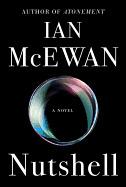 I love that last line, I love this novel, and I love these words from Charles McNulty: "So even though our values have evolved in crucial areas beyond those of Shakespeare's era, we can talk back to the plays because they talk back to themselves. Whether it's sexism in The Taming of the Shrew, racism in Othello, anti-Semitism in The Merchant of Venice or colonialism in The Tempest, it is hard to find a point of view that Shakespeare hasn't already anticipated and embodied."
I love that last line, I love this novel, and I love these words from Charles McNulty: "So even though our values have evolved in crucial areas beyond those of Shakespeare's era, we can talk back to the plays because they talk back to themselves. Whether it's sexism in The Taming of the Shrew, racism in Othello, anti-Semitism in The Merchant of Venice or colonialism in The Tempest, it is hard to find a point of view that Shakespeare hasn't already anticipated and embodied."
And I love these words from Adam Kirsch: "Yet the paradox of Shakespeare is that the same poet who seems so essentially English is also perhaps the most global writer who has ever lived. His character may have praised English isolation--and Shakespeare may never have left the country himself--but his imagination ranged freely across borders."
And, finally, I love these words from U.S. Secretary of State John Kerry, who wrote that he is "still drawn to my favorite of all Shakespeare's plays, As You Like It. Rosalind, who 'promised to make all this matter even', stands out as perhaps the greatest diplomat in all literature. She navigates her own personal traumas of exile, banishment and disguise with tenacity, patience and good humor."
As McEwan's fetus/Hamlet so eloquently puts it: "Words, as I'm beginning to appreciate, can make things true." --Robert Gray, contributing editor
Black Water
by Louise Doughty
In Black Water, her follow-up to Apple Tree Yard, Louise Doughty has created a novel comparable to Graham Greene's masterpiece The Quiet American in its taut exploration of morality on a geopolitical and personal scale. Black Water follows John Harper, long-time employee of The Institute--a mysterious organization that amounts to a non-governmental spy agency--who is forced into an uneasy furlough in rural Indonesia after a lapse of operational judgment. Harper falls for Rita, another foreign transplant with a troubled past, as political turbulence increases prior to the 1998 resignation of President Suharto. Disturbing historical echoes force Harper to reckon with his own culpability in the 1965 massacres that killed some one million Indonesians, when he served as a courier ferrying lists of alleged communists to military officials.
The plot is complex and delves into dark, unjustly forgotten corners of history, including the brutal consequences of the United States' anticommunist efforts. That said, Black Water is as much a character study as it is an espionage thriller, determined to explicate Harper's fractured identity. He is the son of an Indonesian mother and a Dutch father killed by the Japanese during World War II, and extended flashbacks trace his piecemeal upbringing, including a heartbreaking stint in California with a surrogate African American family. Doughty establishes Harper's cynicism and destructive moral relativism as an understandable outgrowth of his past, while providing glimmers of a more optimistic future with Rita. Harper is "not so stupid to believe... that ugly things can't happen in beautiful places," but he's also not so far gone that he can't imagine something beautiful happening either. --Hank Stephenson, bookseller, Flyleaf Books
Discover: Black Water is a gripping thriller, incisive character study, a critique of U.S. foreign policy and a love story haunted by the 1965 massacres in Indonesia.
The Tea Planter's Wife
by Dinah Jefferies
Young, naive and hopelessly in love, Gwendolyn Hooper follows her husband, Laurence, from London to his family's tea plantation in Ceylon (modern-day Sri Lanka) in 1926. Gwen is thrilled about the adventure of living in an exotic place, but her new home isn't quite the paradise it appears to be. As Gwen adjusts to her role as Laurence's wife and mistress of the household, she must also contend with restless plantation workers, a meddling sister-in-law and an American widow who knows Laurence all too well. Dinah Jefferies weaves a complicated story of secrets and tangled relationships in her third novel (and U.S. debut), The Tea Planter's Wife.
Upon her arrival in Ceylon, Gwen meets Savi Ravasinghe, a handsome Sinhalese artist whose presence is both stimulating and unsettling. Savi and others, including Laurence's sister, Verity, drop hints about a few disturbing secrets, such as the fate of Laurence's first wife, Caroline. Like the unnamed narrator in Daphne du Maurier's Rebecca, Gwen lives in the shadow of her predecessor, struggling to make sense of an unfamiliar world where she doesn't know the rules. Although Gwen (like the second Mrs. de Winter) is sometimes irritatingly passive, she eventually finds the courage to take the helm of her own life. But she and Laurence must reckon with the consequences of their decisions, as well as economic and political uncertainties.
Lushly described and full of plot twists (some expected, some less so), The Tea Planter's Wife is a satisfying historical novel. --Katie Noah Gibson, blogger at Cakes, Tea and Dreams
Discover: A young Englishwoman must reckon with family secrets as she adjusts to life on her husband's Ceylon tea plantation.
Every Kind of Wanting
by Gina Frangello
The Odyssey's Penelope wove--both literally and metaphorically--tales and tapestries that resembled each other in their dimensionality and heft. It's fitting, then, that Gina Frangello invokes this classic character toward the end of her novel Every Kind of Wanting, during several characters' arduous wait for the birth of a surrogate's baby. Frangello's (A Life in Men) story is also an act of weaving, the warp and weft of lives turned toward the arrival of an infant.
To describe the novel as merely "intricate" understates its messy, spaghetti tangle of stories: Miguel, whose impoverished, violent Venezuelan childhood makes him fearful of fatherhood; Chad, Miguel's privileged and obliviously sweet husband; Chad's sister, Gretchen, who donates her eggs in the midst of a divorce; Lina, Miguel's feminist stripper younger sister; Emily, Miguel's high school friend who agrees to birth the baby; and Nick, Emily's director husband. This cluster of personas may seem exhausting, but Frangello deftly traces their threads without neglecting to develop a single character. Each individual is just that, remarkably true to life in faults, quirks and insecurities.
The novel follows the complicated pregnancy, through duplicitous motives and health scares that lead to a series of climaxes. Toward the end, circumstances begin to unravel, and it's the balance between interior and exterior, tidiness and chaos, that makes Every Kind of Wanting so winsome. The reader sees the imperfections of these collective lives like a great tableau, as rich and human as a hand-hewn tapestry. --Linnie Greene, freelance writer
Discover: Every Kind of Wanting follows a group of soon-to-be-parents, egg donors, friends and siblings through the intricate process of surrogacy.
Biography & Memoir
Wolf Boys: Two American Teenagers and Mexico's Most Dangerous Drug Cartel
by Dan Slater
A former reporter for the Wall Street Journal and contributor to Fast Company, Dan Slater takes a big leap in subject from his first book, Love in the Time of Algorithms, about Internet dating, to this study of young Texas Latinos caught in the drug wars. Kids in Laredo's Martin High joined one of two groups: "those who would go into the drug business, and those who would chase them." Wolf Boys focuses on Robert Garcia, a local cop and former DEA adjunct, and teenager Gabriel Cardona, a hit man for the notorious Zeta cartel. Slater traces their paths through the streets of an economy built on smuggling's vast wealth--from the Mexican cartels and from Washington's waterfall of resources for drug interdiction and border security. A poor city filled with legal and illegal immigrants, Laredo was awash with money when the "war on drugs" heated up and post-9/11 border hysteria swelled.
A tenacious bilingual journalist, Slater took numerous trips to Laredo, dug through news stories from both sides of the border, read a range of background history and commentary, and conducted hundreds of interviews with Cardona and Garcia. Wolf Boys includes enough history to keep the Mexican drug trade in perspective, but it is Slater's storytelling that carries the day. Not a pretty story perhaps, yet it is an engrossing one. It raises more questions about the effects the "war on drugs" has on the United States' youth than on the Mexican cartels it is meant to combat. --Bruce Jacobs, founding partner, Watermark Books & Cafe, Wichita, Kan.
Discover: Dan Slater spins a captivating account of Texas teen assassins in Mexican cartels and the authorities who try to stop them.
In Such Good Company: Eleven Years of Laughter, Mayhem, and Fun in the Sandbox
by Carol Burnett
When The Carol Burnett Show premiered in 1967, CBS had so little faith that a woman could successfully host a comedy-variety TV show that the new program was dumped into a time slot opposite NBC's award-winning I Spy and ABC's top-rated The Big Valley. Not only did it attract more viewers, but it ran for 11 seasons and won 25 Emmy Awards. Burnett's In Such Good Company looks back at her long-running series with affection and a surprisingly critical eye, offering fascinating and funny backstage anecdotes.
Burnett, who also co-produced the TV series, remembers the show running with amazing efficiency, like a brand-new live Broadway show every week. "We did very few retakes because I wanted our show to have a spontaneous feel," writes Burnett. Prior to writing In Such Good Company, Burnett re-watched all 276 episodes: "I felt like Norma Desmond watching herself on the screen in Sunset Blvd.!"
A natural storyteller (she's written three previous memoirs, including This Time Together), Burnett writes with breezy charm and upbeat assurance. She's also not shy about discussing sketches that fell flat. But her 11-year TV run was a joyous one, and she's full of pride and praise for her costars, writers and hundreds of guest stars. She writes with excitement about meeting, befriending and working with childhood idols like Jimmy Stewart, Rita Hayworth, Roddy McDowall and Gloria Swanson. The chief pleasure of this photo-filled, behind-the-scenes tour of a classic TV show is the tour guide herself, who, in her eighth decade, is as star struck and enthusiastic as ever. --Kevin Howell, independent reviewer and marketing consultant
Discover: Carol Burnett vividly and affectionately recalls her classic comedy-variety TV show with funny backstage anecdotes that will delight fans.
History
The Black Panthers: Portraits from an Unfinished Revolution
by Bryan Shih and Yohuru Williams, editors
With The Black Panthers: Portraits from an Unfinished Revolution, photojournalist Bryan Shih and historian Yohuru Williams seek to tell a nuanced story of the Black Panther Party, one different from the popular conception of gun-wielding "thugs," chiefly male, in black leather jackets and Afros with the leadership--Huey Newton, Bobby Seale and Eldridge Cleaver--centered in Oakland, Calif.
In pursuit of the rank-and-file perspective, Shih photographs and interviews Panthers or former Panthers, male and female, whose narratives express pride, humility, trauma, frustration and hope. Accompanied by essays solicited from scholars, this collection tells a more complex and sympathetic story. While not uncritical, the authors do champion an interpretation that emphasizes love and service over violence, featuring, for example, party programs like Breakfast for Schoolchildren (in more cities than just Oakland), free busing and ambulance services, free health care clinics and more. Shih's photographs are striking and expressive, capturing the "humanizing details" he sought.
The Black Panthers is not the complete story: for instance, the "deep misogyny and sexism within the rank and file and leadership" is mentioned but not really addressed. Perhaps there is no complete story--as proven here, the party was made up of diverse members, with varied goals and motivations. Shih and Williams's objective to expose this multiplicity, and inspire a second look at an energetic but ill-fated cause, is achieved with this intelligent, unapologetic book. --Julia Jenkins, librarian and blogger at pagesofjulia
Discover: Photos, essays and interviews with rank-and-file Black Panthers "complicate the Panther story in a good way."
Religion
Aphrodite and the Rabbis: How the Jews Adapted Roman Culture to Create Judaism as We Know It
by Burton L. Visotzky
In Aphrodite and the Rabbis, Jewish scholar Burton Visotzky takes readers on a historical tour of the ancient Holy Land, presenting a singular conception of Judaism in the early Common Era. His main argument is that modern Judaism is, in regard to practices and traditions, thoroughly Greco-Roman in nature.
Following Judaism in the years after the destruction of the Second Temple in Jerusalem, Aphrodite and the Rabbis plots out the rise of Rabbinic culture. Before the Jewish revolts in the early CE (which culminated in the Temple's razing), Judaism was directed by priests who performed sacrifices and led worship. With no temple, the religion began to move toward more scholarly pursuits, eventually culminating in the rise of the rabbi, a word that means "teacher."
Visotzky uses ancient Judaic texts, Roman historical writing and even the architecture of early synagogues to show that the rabbis were heavily influenced by the surrounding culture of the Roman Empire. From taking on flourishes of Roman rhetoric to the use of pagan symbols, Jews in the early centuries of the Common Era synthesized their practices with the overall mores of the times, creating a monotheistic religion with a dedication to Socratic thought and Stoic philosophy. Many Jewish communities even prayed in Greek!
While Visotzky can veer into unnecessary colloquialisms (his use of the term "metrosexual" is particularly cringeworthy), his warm and personal style makes Aphrodite and the Rabbis feel like an intimate guided tour of ancient Judaism. For anyone interested in the birth of Judeo-Christian culture, this history is worth a look. --Noah Cruickshank, marketing and development manager, Open Books, Chicago, Ill.
Discover: Scholar Burton Visotzky shows the traces of Roman culture still alive in Judaism today.
Humor
Best. State. Ever.: A Florida Man Defends His Homeland
by Dave Barry
One need only Google "Star Wars or Florida" to appreciate Dave Barry's thesis: across the United States, people laugh at Florida more than any other state, and the time has come to tell everyone why Florida is, in fact, awesome.
First, Barry (Live Right and Find Happiness [Although Beer Is Much Faster]) provides "A Scientific Explanation for Why There Are So Many Stupid People in Florida..." with a hilarious lab rat metaphor that, honestly, makes complete sense. He continues with an abridged history of Florida, including the fun fact that "for years the highest point in Florida was LeBron James." However, the meat of his argument on behalf of his home state lies in a raucous road trip through unusual attractions often lost behind the glittering Worlds of Sea and Disney. Barry journeys to the Everglades, home of the Skunk Ape Research Center and maybe-but-probably-not of the skunk ape, takes in a mermaid revue at the Weeki Wachee natural spring, hangs out at a seniors' community that promises "a thriving swingers scene," and makes the obligatory pilgrimage to Gatorland.
Barry has a set of teeth behind his affable humor; he aims for laughs but isn't joking. A warrior for Florida, he celebrates the charm in its idiosyncrasies and lingering kitsch, a reminder that true worth often lies in the quirks and oddities outsiders find initially off-putting. Move over, Lonely Planet: Barry's readers may want to plan a no-corporate-parks trip to the Sunshine State. --Jaclyn Fulwood, blogger at Infinite Reads
Discover: Humorist Dave Barry offers an impassioned and hilarious defense of Florida, his beloved home state.
Performing Arts
Original Gangstas: The Untold Story of Dr. Dre, Eazy-E, Ice Cube, Tupac Shakur, and the Birth of West Coast Rap
by Ben Westhoff
Many of the pioneers of West Coast rap grew up on the same blocks in the "apocalyptic no-man's lands" of South Central Los Angeles and Compton. Dr. Dre, Ice Cube, DJ Yella, Eazy-E, MC Ren and their friends crossed paths in high school, gangs, makeshift studios and especially in the roller rinks where they tested their rhymes, beats and DJ mixes for a tough audience of their peers. Ben Westhoff--former L.A. Weekly music editor and author of the Southern rap history Dirty South--adeptly traces the roots and branches of this complex family tree. Built on interviews with key players, Original Gangstas is a comprehensive mix of reporting, music criticism and personal opinion. Westhoff suggests that the gangsta sound was born with the 1987 single "The Boyz-N-The Hood"--a group creation with Dre's "menacing beat with 808 bass and a long, electro fade-out," Ice Cube's raw lyrics and Eazy-E's rapping. Barely out of their teens, these three became the heart of N.W.A. (Niggaz With Attitudes), whose anthem "F**k tha Police" has become, according to Westhoff, "the most famous protest song in rap history, and perhaps the greatest in history period."
The gangsta label fits. The originators of L.A. hip-hop were drug dealers, gangbangers, wife-beaters, thieves and ex-cons. When the raps became the bestselling soundtrack to a young generation, the money, Beemers, bling and Brentwood mansions arrived. And with them rivalry, lawsuits, paternity claims, murder and mob connections. Westhoff captures it all and makes a compelling case that gangsta rap has "more than any other art form, made black life a permanent part of the American conversation." --Bruce Jacobs, founding partner, Watermark Books & Cafe, Wichita, Kan.
Discover: Ben Westhoff's encyclopedic history of West Coast rap reveals the drama of the outsized personalities who created a transformative new sound.
Children's & Young Adult
The Poet's Dog
by Patricia MacLachlan
"I'm a dog. I should tell you that right away." The narrator of The Poet's Dog is an Irish wolfhound named Teddy. Sylvan the poet used to read Teddy Charlotte's Web, Shakespeare and his favorite, Ox-Cart Man--so in time the dog grew to understand and speak English.
This short, spare novel by Newbery author Patricia MacLachlan (Sarah, Plain and Tall; Kindred Souls) begins in a blizzard, when Teddy comes upon an 11-year-old boy, Nicholas (Nickel), and his younger sister, Flora, left in a broken-down car by their mother, who went to seek help. The dog leads the children through the woods to the cabin where he lived with Sylvan until three days ago, when Sylvan died and was taken away. What follows is a simply spun, but emotionally engaging and richly layered story of a snowy retreat. As the storm rages outside, Flora invents meals that "looked terrible but surprised us by tasting good" and they gather pillows and blankets and an old green sleeping bag and sleep together in a heap in front of the fireplace: "The wind was like a wild song that pushed away the quiet."
Teddy is mourning Sylvan, but quickly grows to love the two children, and they become his new family. As the narrative weaves in and out of Teddy's memories of Sylvan's poetry classes, snippets of songs, poems and even a bit of literary criticism come into play. It's all so warm and cozy that Flora bursts into tears when the storm ends, and readers may feel the same way. Happily, this lovely, deeply satisfying book is about both endings and beginnings. --Karin Snelson, children's & YA editor, Shelf Awareness
Discover: A poet's dog rescues two snow-stranded children in Newbery author Patricia MacLachlan's fine, spare novel about love, loss and language.
The Reader
by Traci Chee
Fifteen-year-old Sefia has been on the run for six years, ever since she discovered the brutal murder of her father and fled their home with "Aunt" Nin. After her mother's death years earlier, Sefia had known only her father and Nin. Hiding in the shadows from the faceless enemy who killed her father, Sefia has learned to hunt, steal and survive in the island kingdoms of Kelanna under Nin's tutelage.
When Nin is kidnapped, Sefia is left searching for answers, starting with "the mysterious angular object" she discovered in her parents' house. It is a book, but she doesn't know it because the written word is unknown in Kelanna. As she slowly learns to read it, Sefia's mission becomes clear: "Learn what the book was for. Rescue Nin. And if she could, make them pay."
Traci Chee's debut YA fantasy, first in the Sea of Ink and Gold series, is wide in scope, a rich mine of overlapping stories and timelines. Sefia is a likable heroine, smart and headstrong yet hesitant enough to be believable. Still, it's the colorful side characters who steal the show. Though the timelines can be a bit unclear, the world-building Chee achieves is remarkable. The book's violence, while intermittent and never gratuitous, can be quite gruesome. Setting the stage for battles to come, and teasing the prospect of a prophesied Red War between the kingdoms, The Reader weaves golden threads through land, sea and the fabric of time in a complex web of powerful magic and dangerous words. --Kyla Paterno, former children's & YA book buyer
Discover: In this tantalizing YA fantasy series debut, a teenage girl from an illiterate world discovers the power of the written word in a mysterious book.
Book Uncle and Me
by Uma Krishnaswami, illus. by Julianna Swaney
Just after turning eight, Yasmin Kader set a goal to "to read one book every day. Every single day, forever." She's already up to more than 400, thanks to after-school detours to Book Uncle's Lending Library, a street-corner pop-up made of planks piled high with books. A faded sign beckons all: "Books. Free. Give One. Take One. Read-read-read." Book Uncle--a retired teacher sharing his love of literature--always greets Yasmin, his "Number One Patron," with a perfect choice: "Right book for the right person for the right day." Yasmin knows Book Uncle's library is unsurpassed in all of India.
Beyond literary pursuits, life for the highly energetic, slightly sassy, occasionally impulsive Yasmin has plenty of drama involving family and friends that middle-grade readers everywhere will recognize. To Yasmin's sincere dismay, she's annoyed her BFF into silence, she's entangled in her parents' panic over her father's overbearing brother's visit and now the whole town is watching the upcoming mayoral election. When Yasmin learns that incumbent Mayor S.L.Y. has a selfish agenda to shut down Book Uncle, she rallies everyone she knows to make things right.
In Book Uncle and Me, the internationally lauded, New Delhi-born Uma Krishnaswami infuses her universal story of underdog justice with vivid elements of her Indian heritage, including "flip-floppy chappals," the "istri lady" who irons for customers and descriptions of the best coconutty puttu, along with other tempting local fare. In this celebratory homage to reading--heightened by Julianne Swaney's charming illustrations--Krishnaswami adroitly inserts memorable lessons on politics, leadership, government processes, grassroots activism and the importance of every single vote. --Terry Hong, Smithsonian BookDragon
Discover: Uma Krishnaswami skillfully mixes family, friendship, the power of good books and grassroots activism in this engaging middle-grade novel set in India.
| Advertisement Meet belle bear! |


